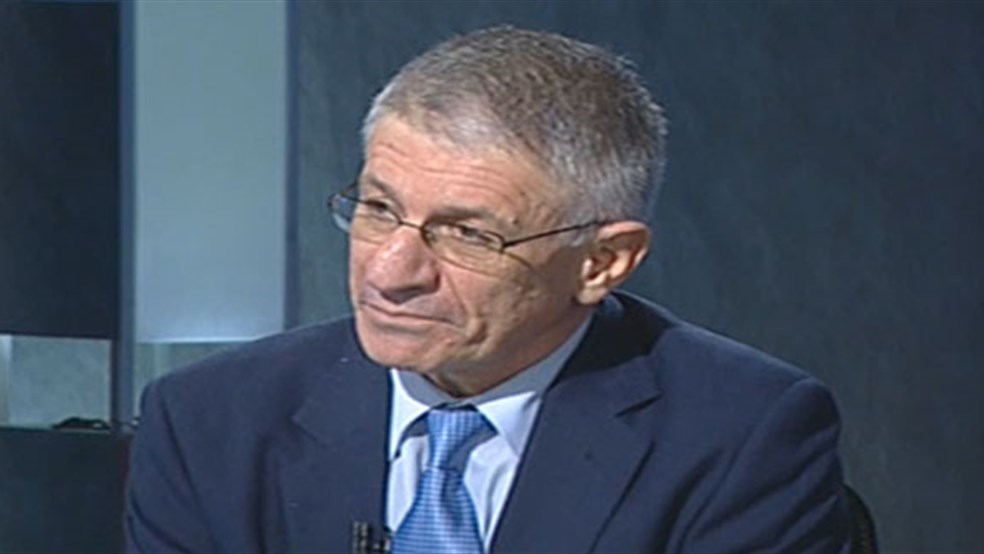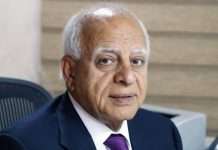A Superman Is Needed for Lebanese Diplomacy
Sam Menassa/Asharq Al Awsat/January 21/2020
مطلوب «سوبرمان» للدبلوماسية اللبنانية
سام منسى/الشرق الأوسط/20 كانون الثاني/2020
من المنتظر أن يعلن قريباً عن تشكيلة الحكومة اللبنانية العتيدة بعد مخاض استمر أكثر من شهرين، والآمال معقودة عليها لإنقاذ البلاد من الوضع الاستثنائي الذي تمر به. فالخطر الذي تواجهه هو خطر وجودي تتداخل فيه أزمات عدة، من أزمة الحكم والنظام إلى الأزمة الاقتصادية والمالية والنقدية إلى التجاذبات الداخلية بين مختلف القوى السياسية إلى الوضع الإقليمي المتأزم وتداعياته على الداخل اللبناني، وصولاً إلى الحراك الشعبي الذي لم تعد تفصل بينه وبين الفوضى العارمة سوى شعرة معاوية.
المعلومات المتوافرة حول التشكيلة الحكومية المفترضة تؤكد من دون أي لبس أنها حكومة أقنعة يتولى فيها الحقائب الوزارية وكلاء نيابة عن الأصلاء، في صورة مضحكة مبكية تثبت مواصلة السلطة استخدام منظومة المحاصصة التقليدية نفسها، كما استمرارها في لعبة التذاكي على المجتمع المحلي والدولي التي باتت مكشوفة للجميع إلا للساحر، الذي لا يزال يؤمن بقدرته الخارقة على الالتفاف والاستخفاف بعقول الناس.
إذا قُدّر لهذه الحكومة أن تُولد، سيكون لونها السياسي الواحد فاقعاً لدرجة استحالة إخفائه على أحد، حكومة تنطق بلغة محور إيران – سوريا دون مواربة. فكيف لهكذا حكومة أن تكون مستقلة أولاً كما يطالب الحراك الشعبي، وإنقاذية ثانياً عندما تلبس ثوب الطرف الذي يرفع راية المواجهة المفتوحة مع العالمين العربي والغربي؟ وكيف لها أن تنجح مع إعلان أمين عام «حزب الله» أن معركة الحزب المقبلة، كما معركة المحور الذي ينتمي إليه، هي اقتلاع الوجود الأميركي من المنطقة؟ وكيف لها أن تنجح في ظل الانعكاسات السلبية لإمساك «حزب الله» بزمام القرار السياسي على علاقاته مع دول الخليج وعلى رأسهم السعودية؟
في الواقع، إذا وضعنا جانباً المشكلات الداخلية في لبنان على فداحتها، فإننا نرى أن ما تواجهه البلاد إقليمياً ودولياً وما سيترتب على الحكومة الجديدة معالجته هو أكثر فداحة.
إقليمياً، أول امتحان أمام الحكومة هو إدارتها لملف العلاقات اللبنانية السورية، وسوريا لم تخرج بعد من حربها المدمرة وآخر مشاهدها ما يجري راهناً في إدلب. كيف ستتعامل مع النظام السوري الذي فقد هيبته وهو المعلق بين سندان روسيا ومطرقة إيران، وخسر شرعيته الداخلية (مع التحفظ) بعد كل الممارسات الوحشية التي ارتكبها ولا يزال بحق شعبه، كما شرعيته الخارجية أكانت بين الأشقاء العرب أم الدول الغربية أم المجتمع الدولي برمّته؟ ما السياسة التي ستعتمدها الحكومة إزاء سوريا مع استمرار وجود «حزب الله» العسكري فيها، وإن خرج، سيبقى وقوفه إلى جانب نظام قمعي نقطة سوداء في وجدان الشعب السوري وقتاً طويلاً؟ كيف ستتعامل مع مشكلة فتح «حزب الله» الحدود بين البلدين مع ما لهذا الأمر من تداعيات أمنية وسياسية واقتصادية؟ وكيف سيكون موقفها من أزمة النازحين السوريين مع إصرار النظام على رفض عودتهم إلا وفق شروطه ما يضع لبنان حكماً بمواجهة مع المجتمع الدولي الذي يصر على عودتهم الطوعية والآمنة؟
كل هذه الأسئلة يمكن اختصارها بسؤال واحد: هل ستطبّع الحكومة الجديدة علاقاتها مع النظام السوري؟ الجواب الأكثر رجحاناً أنها ستفعل. فمشاركة الأطراف اللبنانية المناهضة لنظام الأسد في الحكومة السابقة لم تمنع الحزب وحلفاءه من العزف على وتر تطبيع العلاقات مع هذا النظام ولم تمنع وزير خارجيتها من الخروج عن الإجماع العربي بطرد سوريا من جامعة الدول العربية، فما الذي سيمنعهم اليوم والحكومة كلها لهم وأجندة راعيها تتخطى حدود الوطن ومصالحه؟
الامتحان الثاني هو إدارة الحكومة الجديدة لملف العلاقات مع دول الخليج العربية وعلى رأسها السعودية. لا حاجة لنا إلى تأكيد أهمية العلاقات اللبنانية الخليجية إنْ لجهة حجم اللبنانيين العاملين في دول الخليج أو لجهة ما قدمته على مر الزمان من مساعدات للبنان ووقوفها إلى جانبه في أزماته. ولا حاجة لنا إلى التذكير أيضاً بأن توتر العلاقات الخليجية اللبنانية سببه الرئيس «حزب الله» وتماهي لبنان الرسمي مع مواقفه. ولا نستطيع في هذا الإطار إلا إدخال موقف لبنان غير الودي من دول خليج في إطار النزاع الإيراني السعودي ونجاح «حزب الله» في جذب البلاد إلى فلك نظام الملالي. فما الذي سيتغير مع الحكومة الجديدة؟
الامتحان الثالث هي العلاقات مع العراق والموقف من التطورات التي يشهدها مع تحوله علناً إلى ساحة حرب مباشرة بين إيران وأميركا في ظل حراك شعبي عارم مناهض للتدخل الإيراني في شؤون البلاد. إن السيطرة على العراق تعد مكسباً استراتيجياً لسياسة إيران التوسعية في المنطقة إنْ لجهة زعزعة استقرار الدول الخليجية أو لجهة اعتباره خط إمداد أساسياً لقواتها الموجودة في سوريا كما لـ«حزب الله» في لبنان، إضافة إلى ما يوفره لها من سبل للالتفاف على العقوبات الأميركية. أكثر ما يخيف إيران راهناً هو الحراك الشعبي العراقي الرافض لسيطرتها عبر الطبقة السياسية والفصائل المسلحة التابعة لها على مفاصل الدولة. ما يعنينا في لبنان هو انخراط «حزب الله» مجدداً في قمع شعب عربي، مع ارتباط اسم المسؤول في «حزب الله» محمد كوثراني بجهود طهران وميليشياتها في إخماد الانتفاضة العراقية. فهل بيئة «حزب الله» مستعدة لدفع ثمن جديد، وأي موقف ستتخذه الحكومة الجديدة في حال صح ذلك، وبأي فذلكة ستطالعنا لتضيفها إلى فذلكة «النأي بالنفس»؟
دولياً، ينتظر الحكومة الجديدة ارتفاع منسوب توتر العلاقات مع أميركا والدول الغربية بالتوازي مع ارتفاع توترها مع إيران. كيف ستتعامل مع إعلان الأمين العام لحزب الله حسن نصر الله الحرب على الوجود الأميركي في المنطقة؟ كيف ستتعامل مع تصنيف بريطانيا «حزب الله» بكل أجنحته كجماعة إرهابية واقتراح البرلمان الألماني حظر جميع أنشطته في البلاد، وتفعيل بريطانيا وفرنسا وألمانيا لآلية تسوية النزاعات في الاتفاق النووي متموضعة في الخط الأميركي تجاه إيران؟ تبقى ملفات أخرى كثيرة مثل سلاح «حزب الله» وقرار السلم والحرب وحقوق لبنان في صراعات النفط والغاز في المنطقة.
كل الأسئلة التي طرحناها تدخل في إطار السياسة الخارجية للبلاد، لكن الإجابة عنها حاسمة لجهة حل مشكلاتها الداخلية وعلى رأسها المعضلة الاقتصادية والمالية، إذ لا يمكن للبنان الخروج منها وهو يعادي جميع الأطراف الإقليميين والدوليين القادرين على مساعدته. في ظل سيطرة «حزب الله» على القرارين الداخلي والخارجي، هل ستتمتع الدبلوماسية اللبنانية الجديدة بالجرأة الكافية لإخراج لبنان من سياسة المحاور وصياغة دبلوماسية تعيده إلى حياده الإيجابي التاريخي بعيداً عن مهزلة «النأي بالنفس»؟
وهل ستُسقط النهج المستفز المتّبع الذي قطع لبنان عن تقليده العريق المعتمد على التوازن؟ هل سيتمكن رئيسها من حماية لبنان من العزل الدولي في مرحلة ما بعد مقتل قاسم سليماني واشتداد الأزمة الدولية مع إيران؟ هل سيعود إلى ما خطه كبار تسلموا الدبلوماسية قبل أن يضربها الانحطاط ليقتدي بخير الدين الأحدب وسليم تقلا وحميد فرنجية ويوسف سالم وفيليب تقلا وخليل أبو حمد وفؤاد بطرس وفؤاد عمون وغسان تويني؟
أعان الله الشخصية التي ستتولى وزارة الخارجية في الحكومة العتيدة، فالمطلوب منه قدرات خارقة تجعله أقرب إلى «سوبرمان» منه إلى بني البشر!
A Superman Is Needed for Lebanese Diplomacy
Sam Menassa/Asharq Al Awsat/January 21/2020
It is expected that a new Lebanese government would be announced soon, after more than two months of arduous efforts. All hopes have been put on it to save the country from the exceptional circumstances it is going through. Lebanon is facing an existential threat that includes several governance, economic, financial and monetary crises. They are compounded by internal tensions between different political actors and a deadlocked regional situation with many implications on the Lebanese interior. In addition, only a thin line separates the popular movement from absolute chaos.
What we know about the supposed government confirms, without a doubt, that it will be a cabinet of masks both comically and tragically acting as proxies for the same politicians, proving that the authority continues to employ the same traditional power-sharing system to outsmart the local and international community, a trick that has become obvious to everyone except for the magician, who still believes in his superpower to manipulate and undermine people.
If this government were to be born, it would have one political color that is too bright to hide from anyone. It would be a government that unambiguously speaks the language of the Iran-Syria axis. How could such a government be considered independent, which is what the popular movement is demanding, let alone be a salvation government, when it wears the clothes of the party that raises a banner of open war against both the Arab and western worlds? How could it succeed after Hezbollah’s Secretary-General announced that its next battle, and his axis’ next battle, is eliminating American presence from the region? How could it manage in light of the negative implications of Hezbollah being the political decision-maker in relations with Gulf countries, including Saudi Arabia?
In reality, if we set aside Lebanon’s internal problems, however grave, we would see that what the country is facing regionally and internationally, and what the new government would have to address in this regard is even graver.
Regionally, the first test for the government would be to manage Lebanese-Syrian relations while Syria is still embroiled in its destructive war. How would they deal with the Syrian regime having lost its status being caught between the Russian anvil and Iranian hammer and having lost its internal legitimacy? How would they deal with the Syrian regime with our reservations towards its legitimacy to begin with, after all of its brutal practices against its people, as well as its international legitimacy among Arab countries and the international community?
What is the policy that the government would adopt towards Syria, given Hezbollah’s military presence there? Even if the latter leaves, its solidarity with this oppressive regime would not be forgotten by the Syrian people for a very long time.
How would it deal with the problem of Hezbollah having opened the border between the two countries with all of the security, political and economic implications of that?
What will its position be on the Syrian refugee crisis with the regime still insisting on not allowing their return except under its own terms, which would force Lebanon to confront an international community that insists on their voluntary and safe return?
All of these questions can be summarized in one: Would the new government normalize relations with the Syrian regime? The most likely answer is that it will.
Parties who oppose Assad’s regime and who had been part of the previous government did not stop Hezbollah and its allies from normalizing relations with the regime and did not prevent its foreign minister from going against the Arab consensus that Syria should be expelled from the Arab League. What then will stop them today when the government and its sponsors’ agendas go beyond national borders and interests?
The second test is how the new government would address relations with Gulf countries, led by Saudi Arabia. There is no need to affirm the importance of these relations, whether in regards to the large number of Lebanese workers in the Gulf or to the aid and solidarity these countries have provided to Lebanon during all its crises.
There is also no need to remind ourselves that tensions in Gulf-Lebanese relations are due to Hezbollah and Lebanon’s official agreement with its positions. We cannot, in this context, but explain Lebanon’s unfriendly attitude towards Gulf countries in the context of the Iranian-Saudi conflict and Hezbollah’s success in dragging the country into the mullah system’s orbit. What will change with the new government?
The third test would be on relations with Iraq and the position on the developments there after it turned into an open battleground between Iran and the US after the eruption of the popular uprising against Tehran’s meddling in the country.
Taking over Iraq is a strategic achievement for the Iranian expansionist policy in the region, whether to threaten the stability of Gulf countries or it being considered a main supply line for its forces in Syria and Hezbollah in Lebanon.
Also, taking over Iraq provides means to bypass US sanctions.
What terrifies Iran the most at the moment is the popular movement in Iraq that rejects its control through its political class and armed militias. What concerns us in Lebanon is Hezbollah’s involvement once again in the oppression of an Arab people, with party official Mohammad Kawtharani’s name being tied to Tehran and its militias’ efforts in suppressing the Iraqi uprising.
Is Hezbollah’s popular base ready to pay a new price? What would the new government’s position on that be? And what nonsense would it use to justify it on top of the “self-dissociation” nonsense?
Internationally, the new government would expect a significant rise in tensions with the US and western countries in parallel with the rise in tensions between the US and Iran. How would it deal with Hassan Nasrallah’s announcement of war on the US presence in the region? How would it address Britain’s classification of Hezbollah and all of its wings as a terrorist organization and the German parliament’s proposal to sanction all their activities in their country?
How would it deal with Britain, France and Germany almost falling in line with the American position, by triggering a dispute a mechanism under the nuclear deal with Iran? Many other issues remain, such as Hezbollah’s weapons, the decision to go to war or peace, and Lebanon’s rights in the dispute over oil and gas in the area.
All of the questions that we have posed fall under the framework of foreign policy, but answering them is essential to addressing internal problems, starting with the economic and financial crises. Lebanon cannot solve these crises while being hostile towards all regional and international parties able to help it.
In light of Hezbollah’s control over both the internal and foreign decision-making, would the new Lebanese diplomacy have enough courage to remove Lebanon from the politics of axes and formulate diplomacy that brings it back to its positive historical neutrality away from the “self-dissociation” farce?
Would it cease its provocative stances and return to its traditional balanced approach? Would its president be able to protect Lebanon from international isolation after Qassem Soleimani’s killing and the escalation of the international crisis with Iran?
Would it return to the approach of diplomatic of greats, such as Khayreddin al-Ahdab, Saleem Takla, Hamid Frangieh, Youssef Salem, Philippe Takla, Khalil Abu Hamad, Fuad Butrus, Fouad Ammoun and Ghassan Tueni?
May God help whoever takes over the Ministry of Foreign Affairs in the government, for they will need to be more like Superman than human.






















